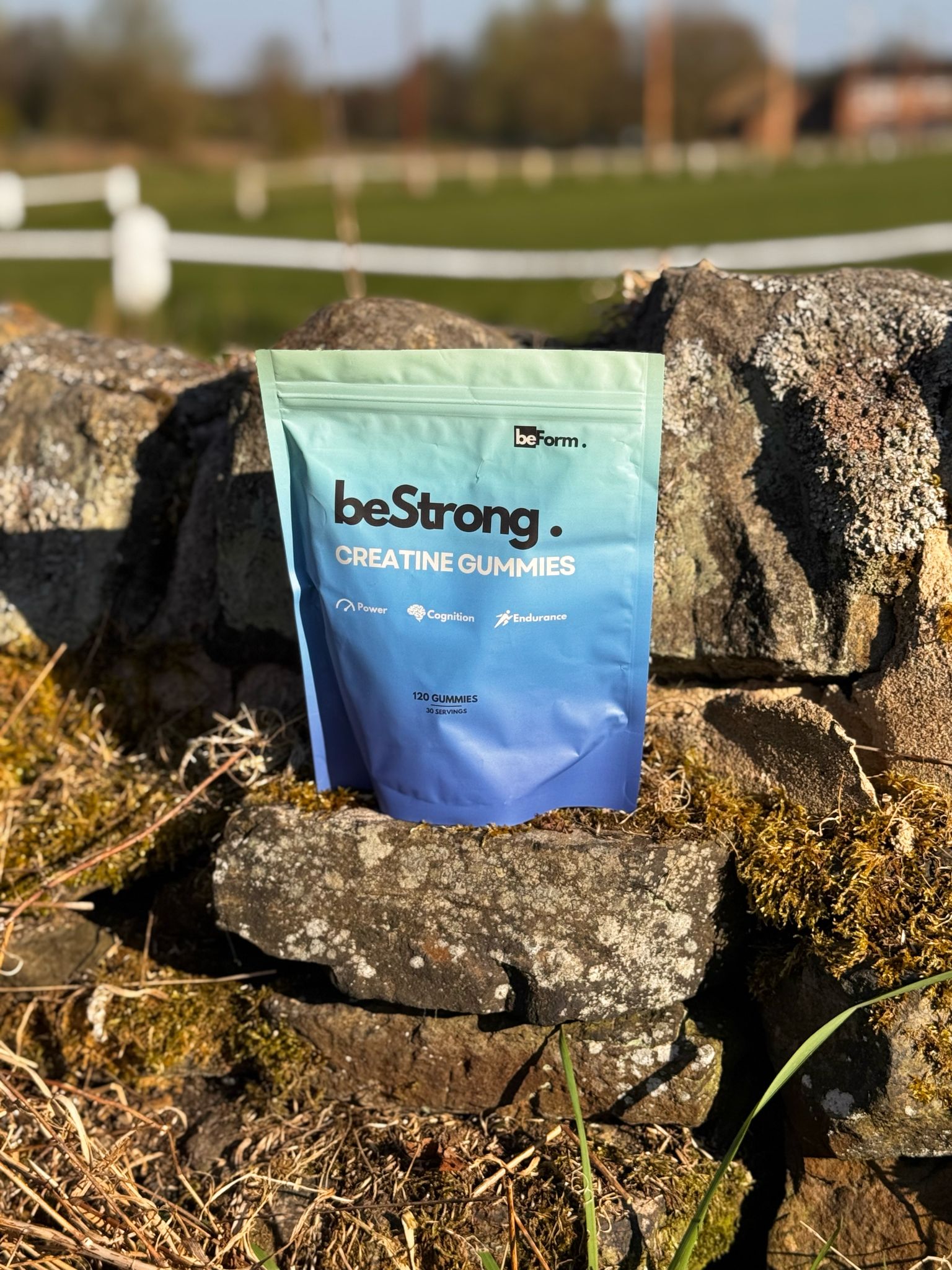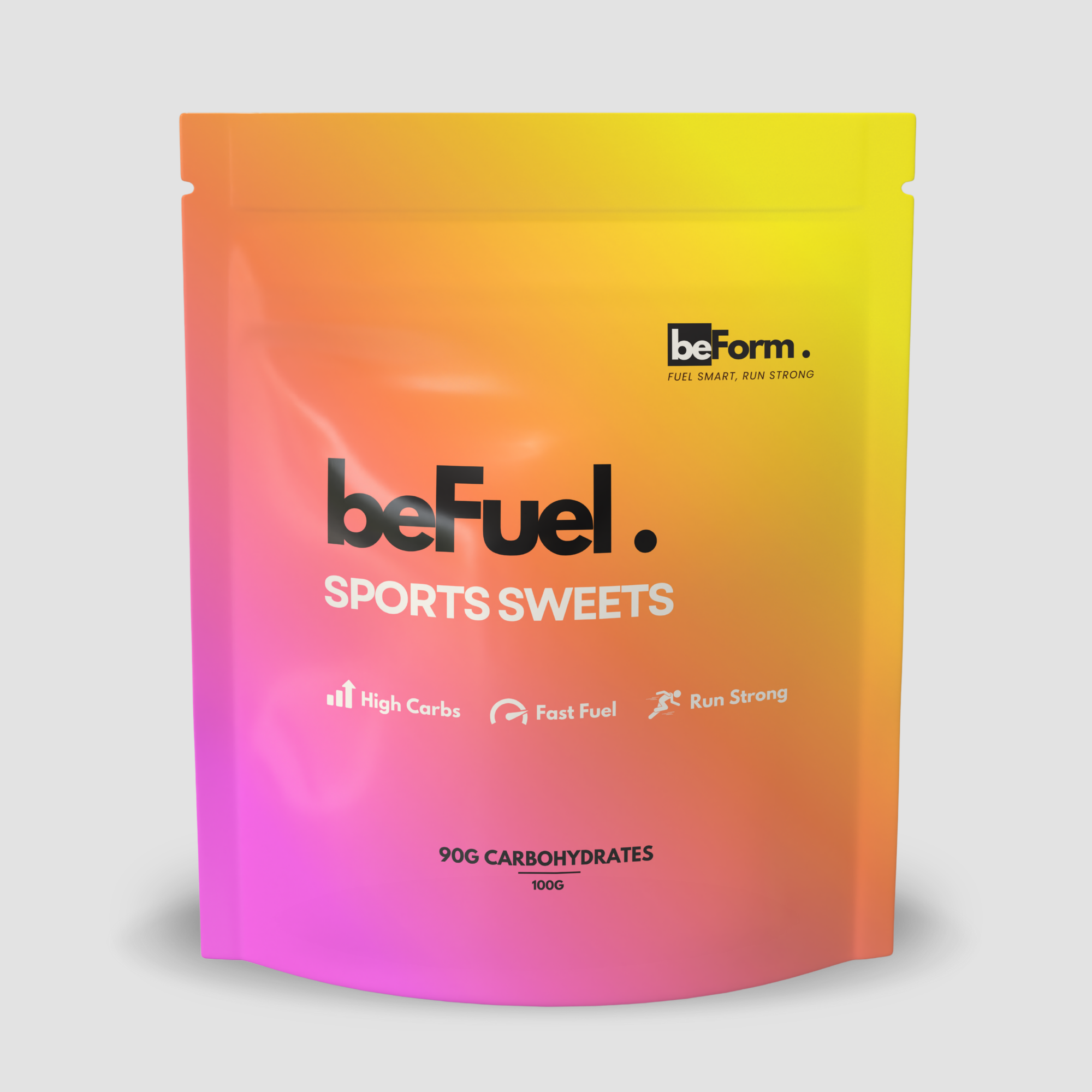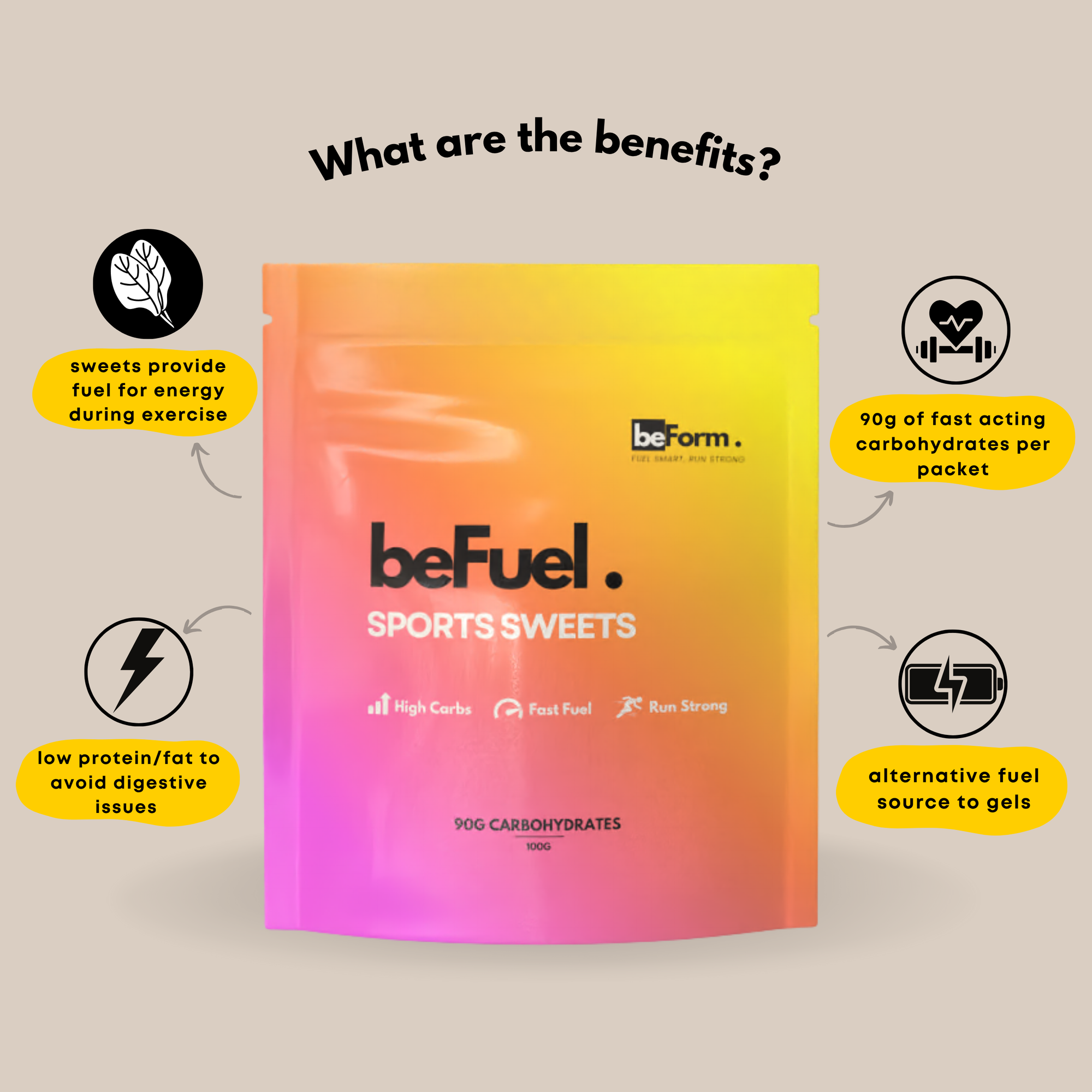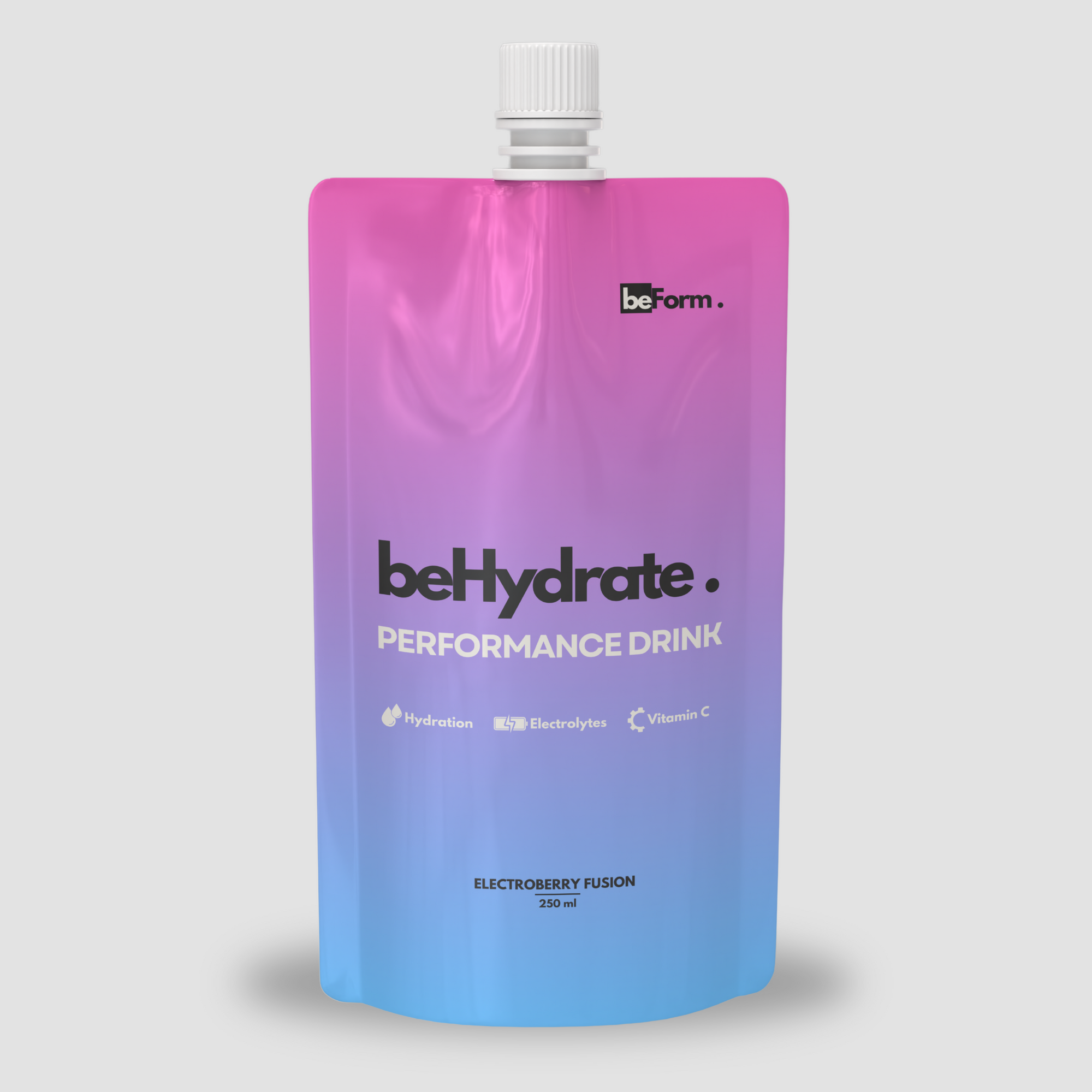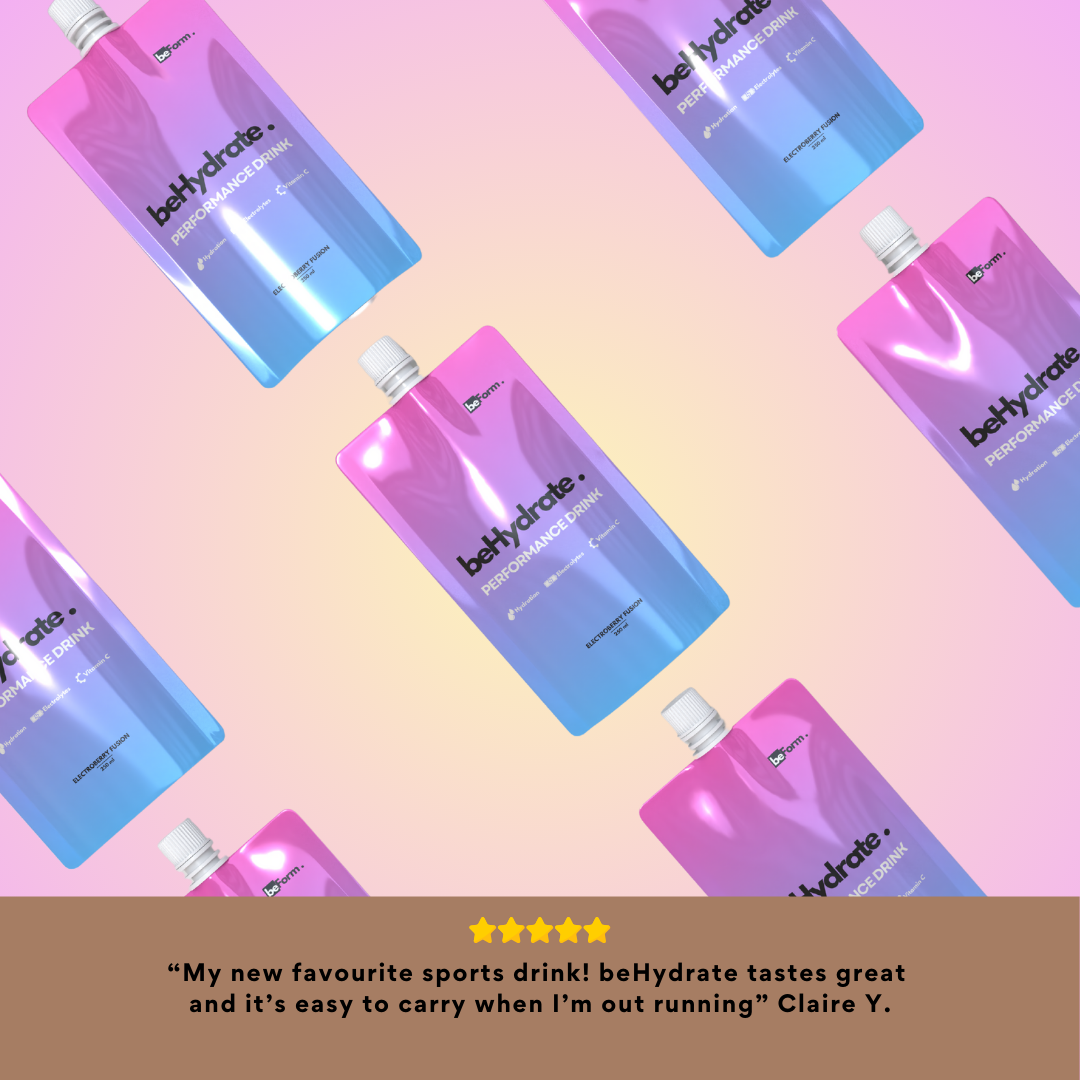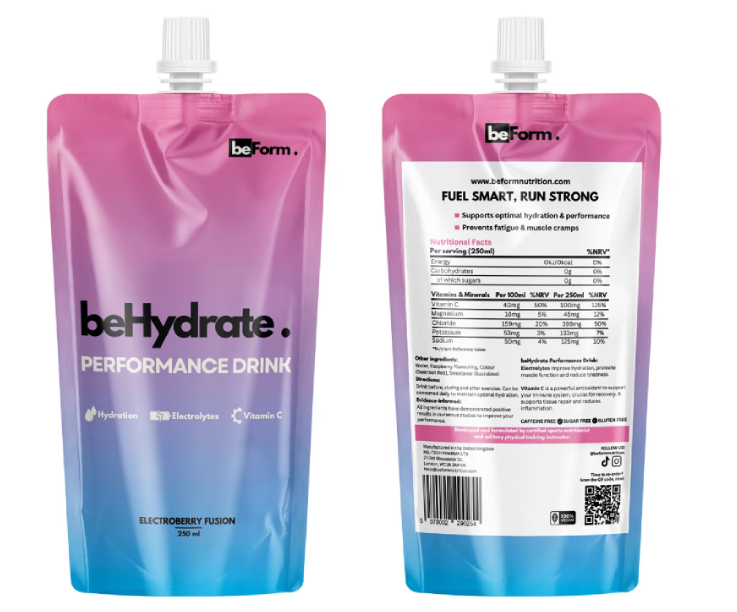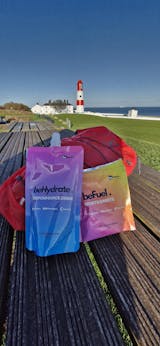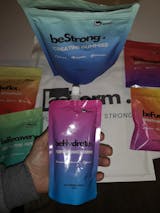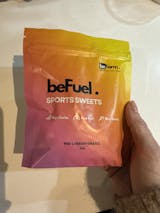Have you ever hit that wall halfway through a long run, feeling as if your energy levels have taken a significant dip?
Or experienced the afternoon slump where your energy drops like that of a Tour de France cyclist after an uphill stage? Sugar might have more of an effect than you realise!
Sugar's relationship to endurance performance can be complex. We often hear it described as the enemy, and in many ways that's accurate.
Too much sugar consumption can lead to energy crashes, weight gain and other health complications, but for endurance athletes, cutting sugar entirely may not always be necessary.
Strategically timed and sourced sugar consumption may provide powerful fueling opportunities while optimising recovery.
Although too much sugar is detrimental, strategically managed intake will benefit endurance athletes. This article investigates the impact of your sugar intake, the science behind its role, and finding an approach that supports your best performance.
1. Assessing the Impact of Reducing Sugar Content for Endurance Athletes
Are You Thinking About Quitting Sugar? Here Is What To Expect:
Initial Results of Sugar Reduction
Be prepared for an initial dip. Your body has become used to relying on easily accessible sugar as an energy source, and when you stop taking it, you might experience fatigue, brain fog, and decreased performance in the first few days or weeks as your body adjusts to using alternative fuel sources instead of sugar for quick energy.
As one person who went sugar-free for 10 days reported: "The first few days were the hardest; I felt sluggish, had headaches, craving sweets after meals - all symptoms that my body relied heavily on sugar for quick energy!"
Sleep can vary significantly with diabetes management; some may find their sleep improves almost instantly as blood sugar levels stabilise, while others might experience disruption from sugar withdrawal symptoms like headaches or irritability. Listen to what works for you and adjust accordingly.
Long-Term Benefits of Reduced Sugar Intake (When Done Correctly)
Insulin resistance occurs when your body becomes less responsive to insulin, the hormone responsible for controlling blood sugar.
Reducing sugar intake improves insulin sensitivity, helping your body use glucose more effectively while decreasing the risk of type 2 diabetes, something essential for maintaining energy during long training sessions.
Sugar is calorie-dense and often found in processed foods that are lacking in essential nutrients. Reducing your intake can lead to weight loss and improved body composition, both of which will significantly enhance endurance performance.
Many find that cutting back makes them feel fantastic; however, maintaining this goal may prove challenging. Consistency is key!
2. The Science of Sugar and Endurance
Let's dive deep into the science of sugar's role in endurance activities. Understanding why can help you make informed decisions regarding your fueling strategy.
How Can Sugar Fuel Endurance Activities
Your body relies on glucose, a simple sugar derived from carbohydrates, for energy during intense exercise. Glycogen stores this glucose within your muscles and liver cells; when exercise begins, glycogen breaks down into glucose to fuel your muscles - think of glycogen as your body's readily available energy reserve!
Glycemic Index (GI) measures how quickly food raises blood sugar levels. Foods with a higher GI cause rapid spikes, while those with a lower GI cause slower, gradual rises. Glycemic Load (GL) takes into account both factors to help you choose appropriate carbohydrates to use at different times; understanding both will allow you to find fuel that meets all your needs!
How Various Types of Sugar Affect Our Health
Simple sugars (glucose, fructose and sucrose) offer quick energy boosts perfect for supporting high-intensity activities or replenishing glycogen stores post-workout. But too much consumption could lead to energy crashes - think of them more as short-term solutions than long-term fixes.
Complex carbohydrates found in whole grains, vegetables, and legumes offer sustained energy release to fuel long-duration activities and maintain stable blood sugar levels. Complex carbs provide slow-burning fuel sources perfect for long runs and rides.
Timing of sugar intake is crucial. Consuming simple sugars before an activity can provide a quick energy boost; during longer exercises, sports drinks and gels may provide support, and after exercising, carbohydrates combined with proteins can replenish glycogen stores while supporting muscle recovery. Timing matters!
3. Optimising Sugar Intake for Maximum Performance
Discovering your sweet spot (no pun intended!) involves careful consumption and thoughtful decisions, mindfully meeting your body's requirements.
Strategic Sugar Intake for Endurance Training
Before your workout, fuel up with complex carbohydrates and small amounts of simple sugars for sustained energy. Examples could be oatmeal with fruit, a whole-wheat bagel with peanut butter, or a sweet potato sprinkled with brown sugar - experiment to find what works for you!
For workouts lasting over 90 minutes, consider fueling up with sports drinks or gels during training to keep energy levels up and avoid surprises on race day. Such products provide an easy-to-absorb source of carbs that provide energy. Practice your fueling strategy during training to prevent surprises on race day!
Rebuilding glycogen stores after exercise is key to recovery. Aim to consume carbohydrates and proteins within 30-60 minutes after finishing your workout - something like a smoothie with fruit and protein powder, chicken breast with brown rice or Greek yoghurt topped with berries and granola may all provide your body with what it needs to rebuild itself and recuperate.
Healthy Sugar Sources for Athletes
Fruits are nature's candy! Packed full of natural sugars, vitamins, minerals, and antioxidants, fruits provide essential nutrition. Select a variety of fruit such as berries, bananas and oranges to ensure you receive optimal benefits from each one.
Whole grains, sweet potatoes, quinoa and other complex carbohydrates provide sustainable energy and essential nutrition, making these the foundation of an endurance diet.
Use sports drinks and gels strategically during long-duration activities to maintain energy levels, including those with an appropriate electrolyte profile. Be sure to give them a trial run during training!
Identification and Avoidance of Hidden Sugars
Be a label detective! Pay special attention when reading food labels to the "added sugars" panel,you may be shocked to learn of just how much hidden sugar there may be!
Processed foods, sauces, dressings and beverages often contain hidden sources of sugars that you might not realise exist. Be wary when anything that claims to be low-fat because, usually, there is much higher sugar content! Keep an eye out!
Fighting off the temptation for sugary treats can be challenging, but label reading helps identify hidden sources of added sugars in processed food products.
To reduce hidden sugar intake, try cooking more at home, choosing whole, unprocessed foods and being aware of your beverage choices - water is always an ideal choice!
4. Practical Strategies and Advice
Here are a few actionable strategies you can implement immediately to start managing sugar intake and seeing results.
Gradual reduction is more sustainable for most people. Begin by cutting out sugary beverages and processed snacks, then gradually decrease your consumption of other sugar-laden foods; even small changes can yield big results over time!
Preparing meals and snacks ahead of time can help you make healthier choices and curb unintentional sugar cravings. Be smart, planning is key!
Dehydration can easily be mistaken for hunger and lead to unnecessary sugar cravings. Stay hydrated by drinking plenty of water throughout the day; electrolytes such as sodium, potassium and magnesium also play an integral part in maintaining energy levels and avoiding muscle cramps as found in our beRecovery daily supplement. Hydration is integral for performance as well as overall health.
You may be interested to hear that our beStrong creatine gummies are sugar-free to help you take greater control of your sugar intake.
Keep track of your hunger cues and energy levels to gauge when and what foods your body requires for fuel. Are you truly hungry, or simply craving sugar? Are you experiencing energy crashes? Make changes based on individual goals; one Reddit user wisely said we already know everything we need, just eat vegetables! Listen to your body, fuel it with what it requires for optimal health!
Conclusion
Finding a balance with sugar intake is a personal journey, and there's no one-size-fits-all approach. Being mindful of your sugar consumption and understanding its role in endurance performance will be key to finding what works for you. Experiment with different strategies until you discover what works for you!
Start by keeping track of your sugar intake for one week. Gradually reduce added sugars while gradually adding more whole, unprocessed foods to your diet. Take note of any changes to energy levels, sleep quality and performance as you adjust your sugar intake - the goal here is finding what works for you!
By taking a balanced and informed approach to sugar management, you can unleash your full endurance potential and meet athletic goals. Remember, it doesn't mean eliminating sugar, but making smart choices that fuel and support performance - now go conquer those miles!
Please share any insight or advice on our Facebook page so we can all work together and overcome this obstacle and enjoy running to the fullest.



